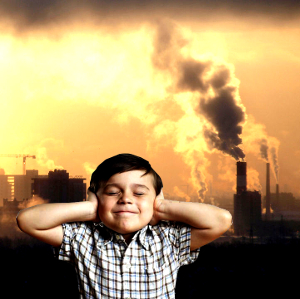Science denial on risk list
 A new report finds science denial is one of the greatest risks to humanity.
A new report finds science denial is one of the greatest risks to humanity.
The newly-formed Commission for the Human Future (CHF) has ranked the top 10 risks to humanity.
Its review finds that influential members of the political class have showed “disdain for scientific knowledge” and in some cases have been “actively hostile to it”.
“This has led to scientific advice being ignored and scientific investment cut because it does not suit short-term political agendas or unfounded political beliefs,” the CHF states in its Surviving and Thriving in the 21st Century report.
CHF is chaired by former Liberal leader and treasury economist John Hewson, with a roundtable that include former government department heads, fossil fuel company directors, doctors, university academics, biologists and scientists.
Dr Hewson says the list of threats to Earth and humanity, which includes dwindling fresh water supplies, ecosystem collapse and extinctions, pollution, pandemics, unchecked AI and food security, are all “interrelated”.
“Humans have, basically, unintentionally done themselves a lot of gratuitous harm by the way they've pursued growth, and population growth and other things, and ignored the consequences,” he said.
“This commission's designed to focus on what we think are the 10 major threats, and to start a process of national and international dialogue.”
Dr Hewson has attacked the Coalition's climate change policy before, and now says governments seem “incapable of accepting science and evidence”.
“They don't want to listen to warnings and projections, they're very short-term in their focus, and they don't think strategically,” he said.
“It means we ignore these risks and [for example] say; ‘Oh, maybe there might be a coronavirus risk, but it's never going to happen’.
“The frustration is, we're finding a way to adjust to the coronavirus [pandemic], and perhaps developing a somewhat effective recovery from it.
“But this was something that was predicted for quite some time and people just didn't pay any attention to that.”
Dr Arnagretta Hunter, CHF board member, says that while the threats are “grim”, the Commission has a message of hope.
“We can turn things around if we can get the right people out in the front, giving the right messages. If we clearly understand the nature and causes of the risks, devise integrated solutions - and take early action to defuse them,” Dr Hunter said.
“The longer the delay, the greater the penalty, both economic and in human lives.
“We need to convince our fellow citizens of Earth of the necessity to commit ourselves and every belief system we hold, to survive and thrive. We must recruit the best and brightest young humans, not to make arms, but to build the process for surviving and thriving for the whole of humanity.”
The report outlines a roadmap for how humanity can survive and thrive, including ending climate change.
“An emergency climate action plan must be adopted globally. The coronavirus experience provides, at a smaller scale, a template for the type of action required, and offers current leadership an opportune moment to abandon the present delay in responding to climate change,” Dr Hunter said.
“It is strongly urged that countries adopt, at a minimum a 50 per cent CO2 reduction target by 2030. This is achievable, both economically and technically.”
Other steps humanity can take include enhancing food security, banning nuclear weapons, repairing the global environment and cleaning up the planet.
“To survive and thrive we also need to develop a more eco-centric vision of our future rather than an anthropocentric or econo-centric one, one that fosters a natural world that is capable of sustaining not only humans, but all the other species, habitats and ecosystems which support life on the planet,” Professor Hewson said.
“For this it is essential that humanity develops a shared understanding of the nature and causes of the risks, that we devise integrated solutions - and that we take early action to defuse them. The longer the delay, the greater the penalty, both economic and in human lives.”








 Print
Print